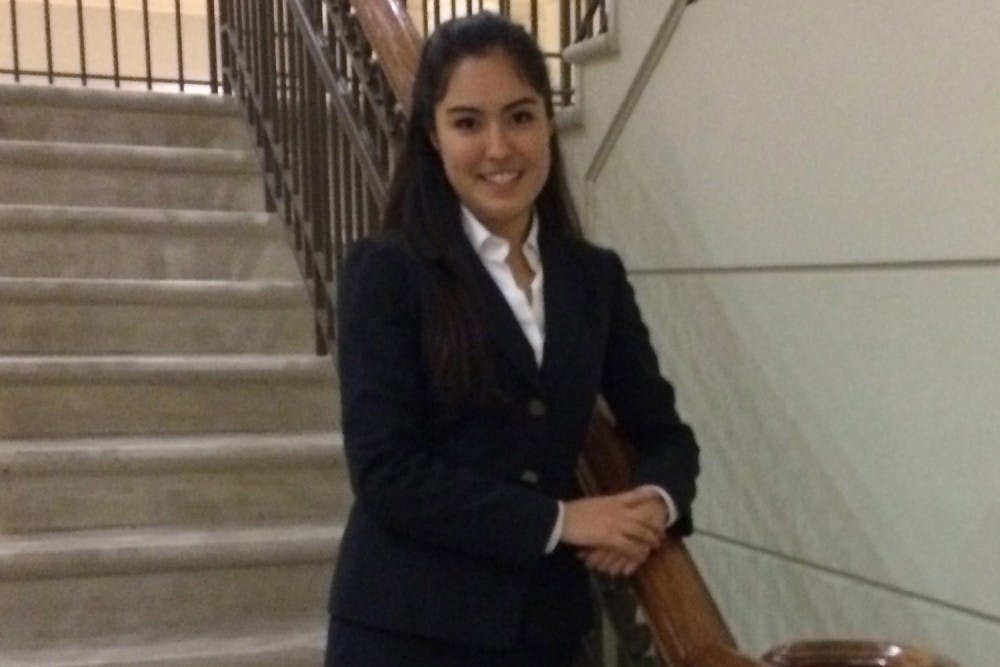These changes include lowering the burden of proof from “beyond a reasonable doubt” to “clear and convincing evidence” and enabling faculty members to participate in the fact-finding phase of academic “not guilty” cases.
Raquel Dominguez , who will become Attorney General April 1 if she is approved by Student Congress this week, said these changes have been discussed, debated and molded for about two years now by various groups.
“We want to make sure that we do that dedication justice and do the University community justice by implementing these changes as effectively as possible while maintaining our standards," she said.
Dakota Foard, who will become chairwoman of the Honor Court if approved by Student Congress this week, said she would work with staff members during the transition.
“I am really looking forward to implementing the changes and publicizing those to the University community so that the community as a whole can really support the court and just making sure everyone knows what the changes are and what’s going on,” Foard said.
Nathan Tilley , current chairman of the Honor Court, said the changes are not meant to affect the standards of the process but to include community members.
“Having faculty members on the hearing process won’t essentially change the divergence of decisions, but it will enable more communities to get a sense of how things work,” he said.
For initial cases of academic dishonesty, new sanctioning guidelines establish a minimum sanction of a failing grade in the course, an aspect of the course or on an assignment and a written letter of warning. It includes a table elaborating on relevant factors in the sanction for consistency purposes.




